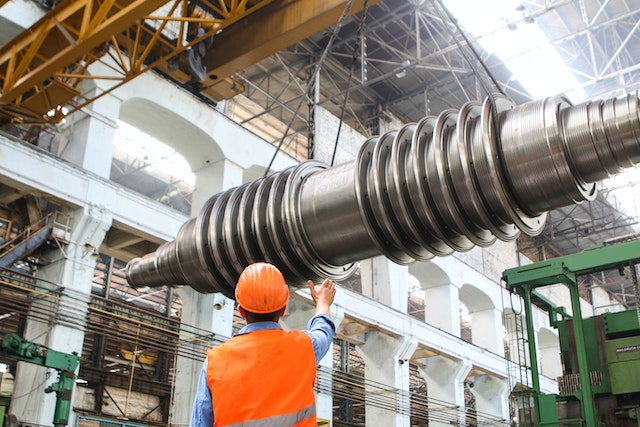April 2,2024
The headline PMI, which was 50.2 in February, declined slightly to a threshold level of 50.0 in March, indicating a generally stable course in operating conditions. Production increased slightly, while new orders and employment volume stabilized. The slowdown in new orders was the smallest in nine months. Input purchases increased for the second consecutive month. Inflation rates eased but remained elevated. The depreciation of the Turkish lira against the US dollar continued to be the main driver of higher input prices.
According to the Istanbul Chamber of Industry Turkey Sectoral PMI report, food products was the only sector where new orders increased among the 10 sectors monitored. Among the sectors monitored within the scope of the survey, the number of those who increased their production decreased from four in February to three in March. The sharpest slowdown in production occurred in the textile sector, while inflation remained high in the land and marine vehicles sector. The stagnant picture in production stemmed from the contraction in new orders in all sectors except food products. The number of sectors that increased their employment in March fell to two for the first time since May 2020.
The results of the March 2024 period of the Istanbul Chamber of Industry (ISO) Turkey Manufacturing PMI (Purchasing Managers’ Index) survey, which is considered the fastest and most reliable reference in manufacturing industry performance, which is the leading indicator of economic growth, were announced. According to the results of the survey, where all figures measured above the threshold value of 50.0 indicate an improvement in the sector, the headline PMI, which was 50.2 in February, was realized as 50.0 in March with a slight decrease.
The stagnation in the performance of the sector stemmed from the small changes in the main components of the headline index. In March, manufacturing industry production recorded a very limited increase, while new orders and employment volumes came close to a halt despite the ongoing decline in new orders and employment volumes. The slowdown in new orders was recorded at the lowest rate in the last nine months. This relative improvement in the demand environment encouraged some firms to increase production and purchasing activities.
INCREASE IN SELLING PRICES AT 3-MONTH LOW
Production and input purchases increased for the second consecutive quarter, while the expansion in purchasing activity was more pronounced than in February. Nevertheless, both input and end-product inventories remained on a downward trend at the end of the first quarter. Some firms faced delays in input purchases due to disruptions in the Red Sea and delivery times increased for the third consecutive month.
The depreciation of the Turkish lira against the US dollar continued to be the main driver of higher input prices in the sector, with some firms also reporting higher raw material costs. Although input cost inflation was realized at the mildest level of the last three months, it remained high. The rise in selling prices was also at a three-month low in March. However, the inflation rate remained significant and realized above the series average.
Commenting on the Istanbul Chamber of Industry Turkey Manufacturing PMI survey data, Andrew Harker, Economics Director at S&P Global Market Intelligence, said: “March was a month of stability for Turkish manufacturers. New orders continued their recent trend and came close to stabilizing, and this improvement in the overall picture helped sustain a moderate increase in production and purchasing activity. If this trend in demand continues, we expect growth to gain momentum going into the second quarter of the year.”
NEW ORDERS SLOWED DOWN
Turkey Sectoral PMI report indicated that new orders slowed down across the board in March due to the continued sluggish demand. New orders increased only in food products, while production slowed in the majority of sectors. Employment expansion was also limited in March. On the other hand, prices continued to rise, with the highest inflation in the land and watercraft sector.
TEXTILES SAW THE SHARPEST DECLINE IN PRODUCTION
Among the sectors monitored by the survey, the number of those that increased their production decreased from four in February to three in March. Even in sectors where production increased, growth was generally moderate and only the food products sector showed a significant expansion. The sharpest decline in production was recorded in the textile sector. The stagnant picture in production stemmed from the contraction in new orders in all sectors except food products. As in production, the sharpest decline in new orders was observed in textiles. In export markets, on the other hand, a slightly more favorable demand environment was observed. New orders received from abroad increased in three sectors. The number of sectors that increased employment in March fell to two for the first time since May 2020. The two sectors that added jobs were food products and machinery and metal products.
Input costs continued to rise sharply, but at a slower pace than in February in most sectors. The most limited increase in input prices was observed in clothing and leather products, while the sharpest rise was recorded in the land and watercraft sector.
Similarly, the fastest increase in final product prices was observed in land and water transport vehicles. However, as in almost all sectors, inflation slowed down compared to the previous month. The sectors with the slowest increase in final product prices were electrical and electronic products and chemical, plastic and rubber products.
DELIVERY TIMES SHORTENED IN FOUR SECTORS
Supply chains displayed a complex outlook in March. Delivery times shortened in four sectors, while the wood and paper products sector recorded a record improvement in supplier performance. Delivery times increased in the remaining six sectors. As demand conditions were generally sluggish, the number of sectors that increased their purchasing activities in March was limited to three. Similarly, input inventories declined across the board, rising only in food products and machinery and metal products.
Source: Istanbul Chamber of Industry
Legal Notice: The information in this article is intended for information purposes only. It is not intended for professional information purposes specific to a person or an institution. Every institution has different requirements because of its own circumstances even though they bear a resemblance to each other. Consequently, it is your interest to consult on an expert before taking a decision based on information stated in this article and putting into practice. Neither Karen Audit nor related person or institutions are not responsible for any damages or losses that might occur in consequence of the use of the information in this article by private or formal, real or legal person and institutions.






